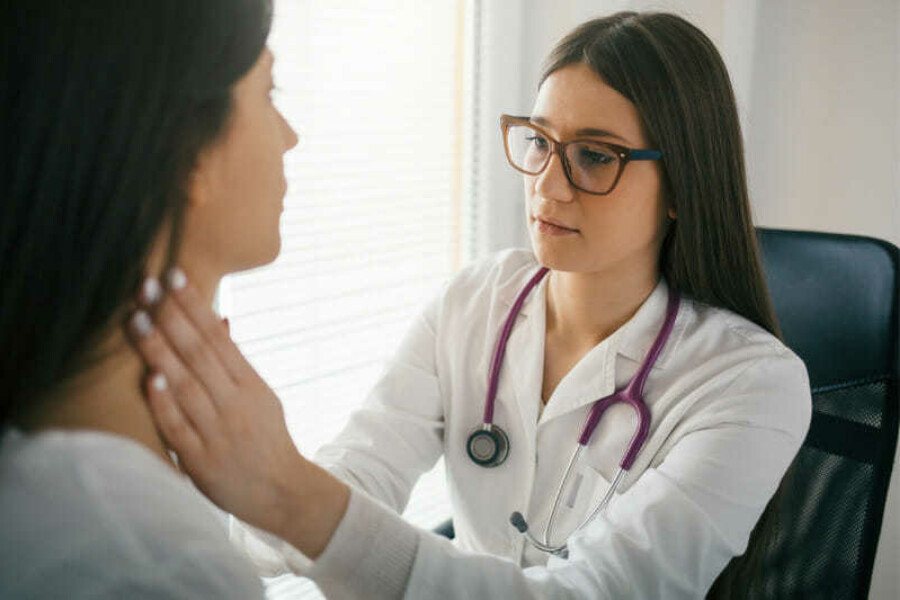An Overview of Lymphedema and Your Treatment Options

Lymphedema can result in debilitating swelling in any of your lymph nodes, but if you take a proactive approach to treatment, you can easily manage your symptoms.
Lymph nodes are the unsung heroes of the human body. These ovular organs located throughout the body host the white blood cells that attack bacteria, fungi, and other infectious agents, making them indispensable to the immune system. According to Cleveland Clinic, lymph nodes can swell or get bigger when your body is fighting an infection or an illness.
On occasion, however, excessive fluid can accumulate in the lymph nodes, resulting in a disorder called lymphedema. Affecting as many as 149 million people around the world, lymphedema is caused by a failure or defect in the lymphatic system. If you’ve recently noticed unusual swelling, tenderness, or pain in any of your lymph nodes, we’ll help you better understand the issue and find appropriate treatment for this easily managed condition.
Symptoms and Stages
As its name suggests, lymphedema is a form of edema, an accumulation of fluid underneath the skin. As such, the primary symptom is moderate to severe swelling, most often in the legs and feet. Other common symptoms include:
- Heaviness and tightness in the affected limb
- Pain and discomfort
- Skin changes
- Recurrent infections
Depending on its cause, lymphedema can be either primary or secondary. Primary lymphedema is usually caused by congenital disorders such as Meige’s or Milroy’s diseases, while secondary lymphedema is usually a product of diseases such as cancer, bacterial infections, deep vein thrombosis, or chronic venous insufficiency.
Regardless of its origin, lymphedema usually progresses through several stages:
Stage 0: No symptoms are present during stage 0, despite a present lymphatic injury.
Stage 1: During stage 1, the swelling may be noticeable when the limb is at rest. It usually responds to elevation, however, and it tends to disappear when walking.
Stage 2: During stage 2, the tissue begins to become hard and firm. These are the earliest signs of fibrosis, a gradual increase in the size of the limb and a hardening of the underlying tissue. The limb does not respond to elevation, but it can still be treated.
Stage 3: During stage 3, the skin becomes inelastic, and the underlying tissue ceases to respond to treatment. It is most often associated with open wounds or fungal infections.
Treatment for Lymphedema
Though there isn’t a cure for lymphedema, with some dedication and the assistance of a qualified specialist, most patients can reduce their symptoms and dramatically improve their quality of life.
Lymphedema responds well to a number of conservative treatments. Many patients particularly benefit from wearing compression garments on the affected limb, while other patients find relief from laser therapy. There are also surgical options available for many patients with mild to advanced lymphedema. Contrary to popular belief, however, diuretics should not be used to treat lymphedema, as diuretics only have an effect on the digestive system and will not clear lymphedema symptoms.
Lymphedema can also be managed with complete decongestive therapy (or CDT). CDT is divided into a clinical and at-home phase, both of which entail different tasks. During the clinical phase, patients work with a qualified venous specialist to begin an appropriate treatment plan.
At this time, patients will begin wearing compression bandages, start an exercise program tailored to their needs, and practice good skin and nail care. In the clinic, a vein specialist will begin to manually drain the lymph nodes to minimize swelling. As soon as patients are comfortable with their care routine, they can return home and continue to practice it by themselves.
Patients suffering from lymphedema who take a proactive approach to treatment can effectively manage their symptoms. Contact a vein specialist to receive a comprehensive evaluation of your symptoms and find the right treatment path for you.